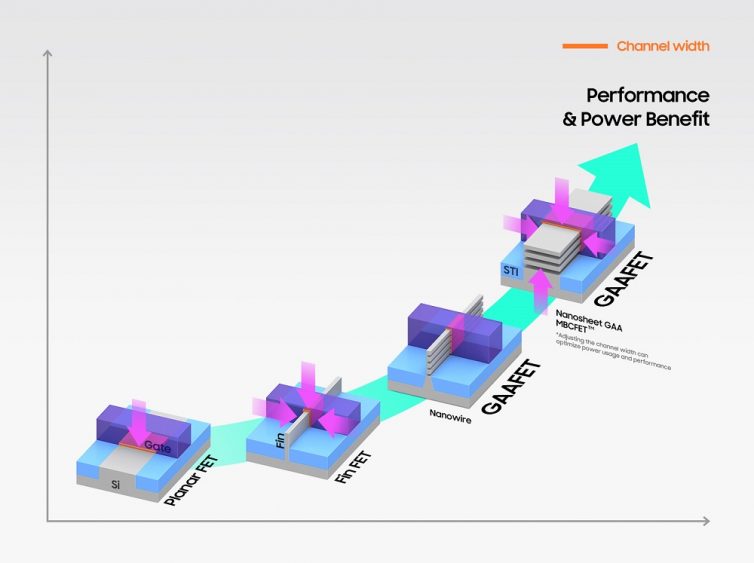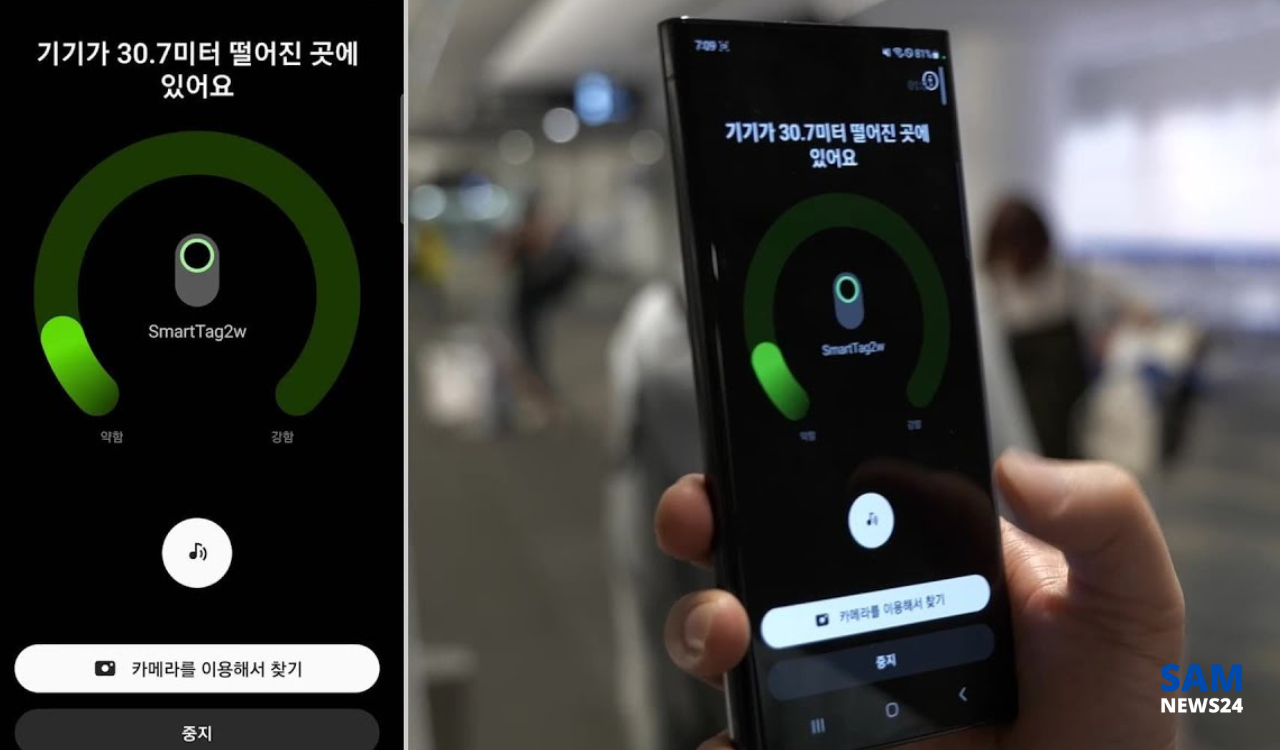Samsung electronics, being the world leader in semiconductor technology, recently announced the production of its 3nm(nanometer) foundry processing chip.
It is reported that the South Korean tech giant is ready to set the trial production of this remarkable chip as early as this week, Samsung is making this chip using a Gate-All-Around (GAA) design offering which enhances the overall performance of the chip to a great extent.
GAA Architecture
Samsung’s GAA technology implemented for the first time ever, With MBCFET (Multi-Bridge-Channel FET) GAA architecture accelerates the performance limitations of FinFET, improving power efficiency by reducing the supply voltage level, while also enhancing performance by increasing drive current capability.
It is said that compared to the 5nm process, the first-generation 3nm process can reduce power consumption by up to 45%, improve performance by 23% and reduce the area by 16% compared to 5nm, while the second-generation 3nm process is to reduce power consumption by up to 50%, improve performance by 30% and reduce the area by 35%.

As per reports, Chinese firm Pansemi will be the first customer of Samsung to be purchasing these chips, PanSemi also designs ASICs to process Bitcoin mining.
Basically ‘Application-specific integrated circuits (ASICs)’ chips are energy-efficient hardware units, that can help make the process of Bitcoin mining less detrimental to the environment.
Now with its upcoming offering, Samsung is set to give competition to Taiwan Semiconductor Manufacturing Company (TSMC), which also manufactures custom chips and in this way, Samsung could add more competition if it plans to create its own hardware, which it is financially capable of carrying out BTC mining.
As per the report, US President Joe Biden visited Samsung’s plant at Pyeongtaek last month to attend a demonstration of Samsung’s 3nm tech. Last year there was talk that the company could invest $10 billion to build a 3nm foundry in Texas. That investment has grown to $17 billion, the plant is expected to begin operation in 2024.






























